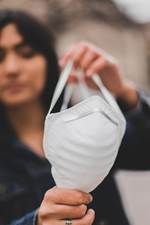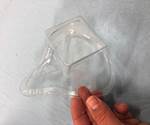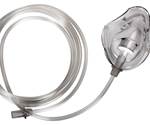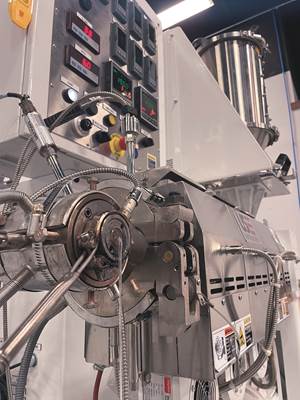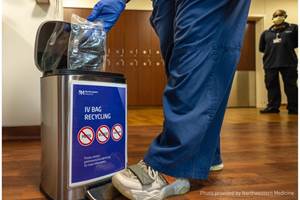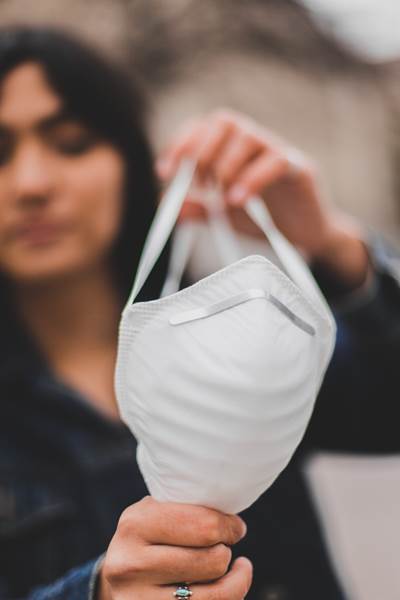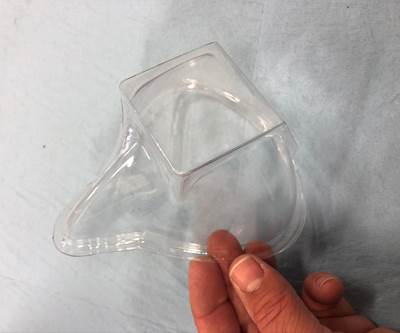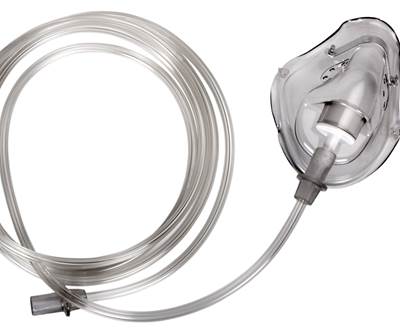NatureWorks Partners with Nonwoven Institute in N95 Mask Production for Coronavirus Fight
Amidst the coronavirus crisis, NatureWorks has donated PLA bioplastic to produce as many as 2 million/week reusable N95 masks from a new nonwoven structure.
To assist in addressing the shortage of personal protective equipment (PPE) for medical workers confronting the COVID-19 crisis, a long-standing partnership between NatureWorks, Minnetonka, Minn., and the Nonwovens Institute (NWI) at North Carolina State University has resulted in a new spunbond nonwoven technology enabling the production of at least 10 million additional N95 surgical masks. NWI has converted the use of its research and training pilot production line to produce the face mask materials, and NatureWorks has donated its Ingeo PLA bioplastic needed to produce the spunbond material.
Said NatureWorks president and CEO Rich Altice, “Donating the Ingeo needed for this application was an easy decision. We wanted to support NWI, our long-time partner, as they create devices that will protect the healthcare workers who will take care of us, our families, our colleagues, and our communities in this crisis.”
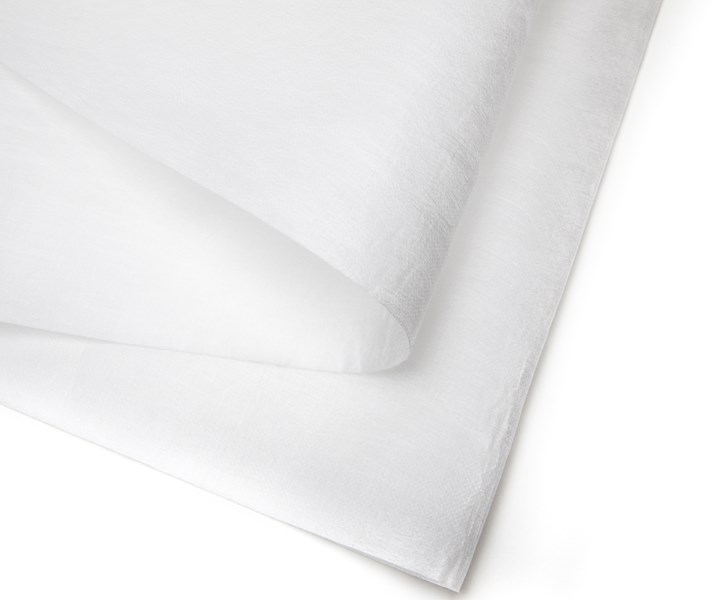
NatureWorks Ingeo PLA makes up 25% of new nonwoven structure.
Typical N95 respirators and surgical masks are a multi-layer structure of one or two spunbond nonwoven layers that provide mask shape and protect the inner filtration layer. Those layers are combined with an electrostatically charged layer of meltblown nonwoven material which serves as the filtration layer capturing microscopic unwanted particles such as viruses and bacteria. The charge is what boosts the meltblown’s filtering capabilities, but it also means that the masks cannot be reused since the charge can be lost during the cleaning process.
Explaining the need for a new nonwoven structure, Behnam Pourdeyhimi, executive director of NWI, Wilson College of Textiles associate dean for industry research and extension, and William A. Klopman distinguished professor said, “Because of the COVID-19 crisis, we took the spunbond technology and created a new generation of unique filters that have excellent filtering capability without needing to be charged, meaning they can potentially be reused after cleaning with peroxide, or an alcohol solution. Because these materials are also strong, they can be cut and sewn by traditional techniques.”

The new nonwoven fabric is a bicomponent fiber made of Ingeo PLA and PP, providing significant strength and bulk with equal effectiveness in filtration. Additionally, Ingeo improves the productivity of the spunbond process by at least 30%. Leveraging these benefits, NWI’s pilot line can produce enough material to make 2 million masks per week.
Here are some further details NatureWorks sources provided to Plastics Technology:
▪ Ingeo PLA is 25% of the structure. It’s a bicomponent fiber of PP and Ingeo, where the Ingeo aids in both processing and filtration.
▪ ExxonMobil has donated the PP used for this structure.
▪ The NIOSH and FDA are the relevant certifications needed for the final mask but not the fabric, However, the new fabric must, and does meet the efficiency requirements.
▪ N.C. State/NWI has already donated 5,000 meters of material to Fort Bragg where they are sewing masks.
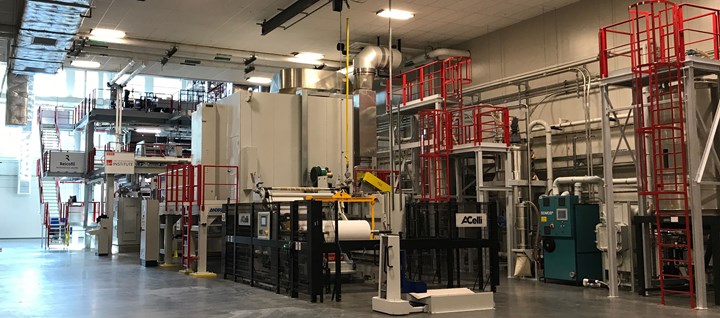
The Nonwovens Institute at North Carolina State University has converted the use of its research & training pilot production line to produce face mask materials using a new spunbond nonwoven technology.
As further explained by Pourdeyhimi, “Typically, one meter of spunbond material provides enough for about 20 to 25 masks when using the current designs. One of the NWI’s production lines started producing 2000 meters of spunbond material per hour, with the potential to create some 20,000 meters of spunbond material in a day.”
NWI currently has an agreement to provide large amounts of spunbond nonwoven material to several key partners, which will make masks at their manufacturing facilities. They plan to provide the new masks to local communities in need. NC State has also ordered machines that will allow NWI to make surgical masks in its Centennial Campus facilities. Those machines should arrive in the next month.
The Nonwovens Institute is the world’s first accredited academic program for the interdisciplinary field of engineered fabrics. NatureWorks has been supporting NWI for more than 10 years and is also currently part of the institute’s executive committee.
Said Robert Green, v.p. of NatureWorks’ Performance Polymers, “NWI is known to be the global leader in nonwovens creating high tech fibers across applications. Their development of this spunbond structure has come to fruition at a critical time when high performance nonwovens are needed to meet the urgent need for PPE by medical professionals during this pandemic.”
Related Content
3D Printed Spine Implants Made From PEEK Now in Production
Medical device manufacturer Curiteva is producing two families of spinal implants using a proprietary process for 3D printing porous polyether ether ketone (PEEK).
Read MoreCatheter Specialist Finds Sweet Spot Serving Small, Medium-Sized Concerns
Medical-component specialist LightningCath has carved a niche meeting the needs of small to medium-sized entrepreneurs with complex catheter designs … quickly.
Read MoreAllegheny Performance Plastics to Enter Health Care Sector
The custom molder has secured multiple projects in health care and will be adding cleanroom and white-room spaces, as well as injection molding machines, in support.
Read MoreBaxter to Scale Up PVC Intravenous Bag Recycling Program
Successful pilot program with Northwestern Medicine will expand to additional units and health systems.
Read MoreRead Next
Coronavirus Spurs Nonprofit Startup to Develop World's First Compostable N95 PLA Masks
THRIVE Masks aims to produce meltblown PLA masks in the U.S. through Kickstarter campaign.
Read MoreNovel Washable PE-Based Health Mask Produced Via Thermoforming
Responding to coronavirus outbreak, Orbis is offering its BiOAID mask technology to interested thermoformers.
Read MoreMaterials: Medical TPEs for Face Masks & Cushions
Teknor’s two families of medical-grade TPEs include a deformation-resistant series for flexible masks.
Read More

